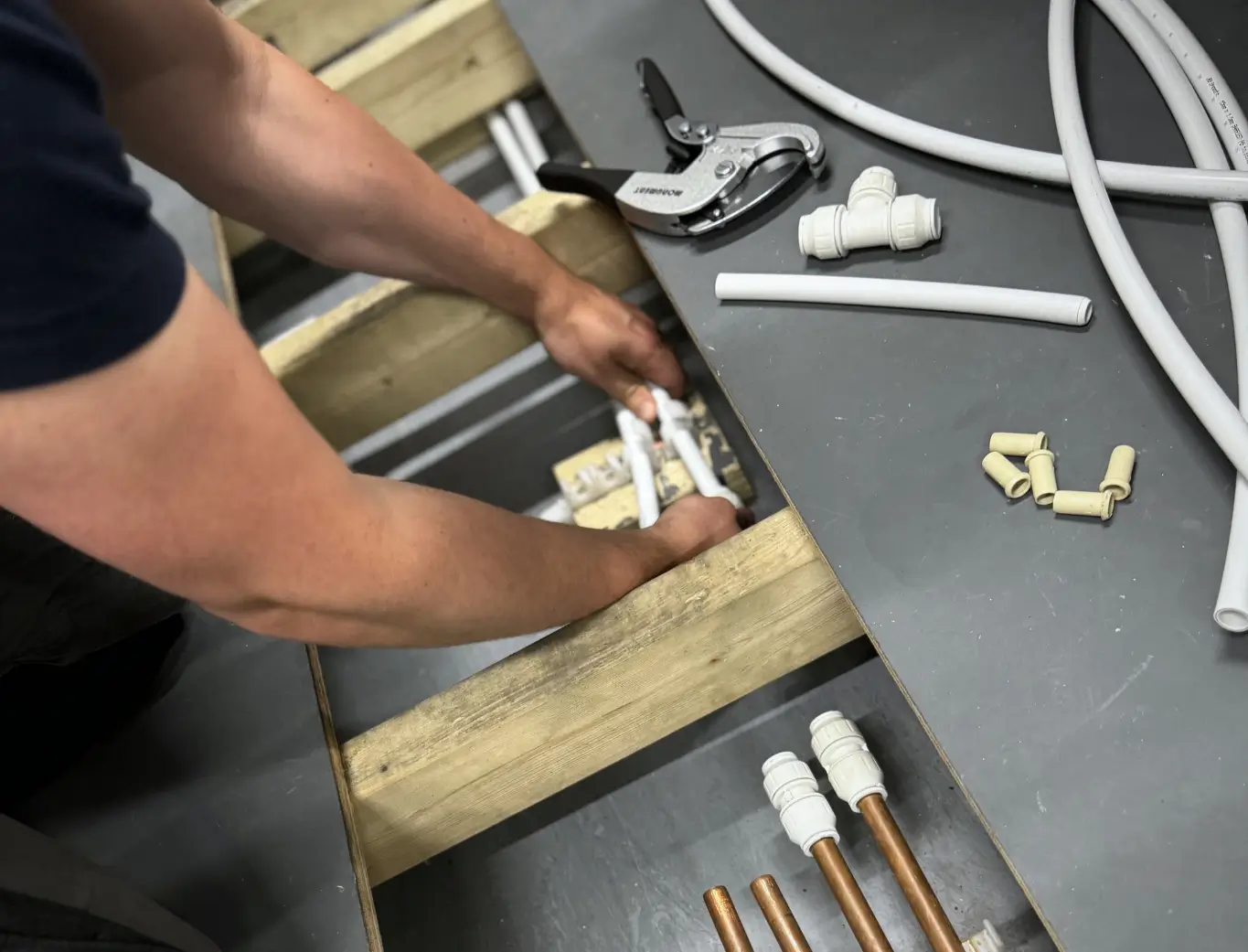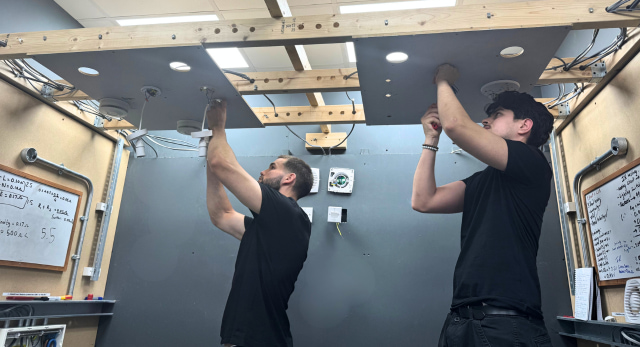If you’re not convinced that spending the next three or four years at university is the right choice for you, here are the top 5 reasons you might learn a trade rather than a university degree:
1. Trade College costs less
The tuition fees for a typical university degree in the UK are around £9,500 a year. That’s £28,500 over the lifetime of a three-year degree or £38,000 for four.
This, plus living costs, leaves many students saddled with significant debts to pay back as soon as their annual salary is higher than £24,990 – when monthly instalments are automatically taken from their wage packets.
Learning a trade is much cheaper. Take our most comprehensive training packages designed for those with little or no prior experience, for example:
The New Entrants Domestic Installer Gold package, which provides intensive training for those interested in a career in the electrical industry, costs £5,745 + VAT.
The Platinum Package for Plumbing, Heating and Gas Installers, which includes other benefits such as a year’s membership of Checkatrade and help in building a website, costs £8,995 + VAT.
Those who choose vocational learning over university study take on less debt and, therefore, a lower financial burden in the future.
2. Trade college usually takes less time – it’s more flexible too
It’s true that if you were to become an apprentice, you’d be looking at around four years to complete your qualification, which is similar to the time it takes to complete a university degree (though remember you’d be earning a modest salary along the way).
Private training providers offer learners the opportunity to study intensively and reduce the amount of time they need to gain qualifications. Be wary of courses that offer to train you in a few weeks, realistically, you’ll need between a year and eighteen months to gain the valuable practical experience you gain during periods of supervised work-experience.
Our new entrants’ programmes are focussed on the completion of evidenced portfolios of practical learning; essential parts of the courses designed to ensure our newly qualified engineers are fully competent and confident in what they are doing.
Many centres offer flexible training options, with evening and weekend courses to help those with family or work commitments fit their learning around the rest of life’s demands.
3. Vocational training is more hands-on
If hours spent in lectures, seminars and the university library don’t float your boat, you might be better suited to the practical approach of vocational training. There will obviously be theoretical stuff to learn when you’re studying to be an electrician or heating engineer, practical sessions are essential. At Logic4training, we have state-of-the-art training rigs where you’ll be taught by passionate professionals with years of experience behind them.
This idea of active learning follows through into a more active working life. You won’t be stuck behind a desk and a computer if you choose a job in the trades, there will be plenty of variety and your working day will help keep you physically and mentally fit.
4. Vocational training leads to fulfilling work
Many university graduates end up in roles that don’t match their qualifications, as the job market for graduates is unpredictable. If you train in the trades, you’re on a clear path to the career you’ve chosen.
Many of the engineers who train with us find their work fulfilling. They get real satisfaction from problem-solving and directly helping people who need their expertise. There’s also great flexibility in the trades. You can move anywhere and pick up a job.
You can also start your own business and become your own boss, specialise in a particular field or move into training. Renewables are becoming increasingly important in the UK’s drive to become carbon neutral, so it’s a particularly exciting time to train as an engineer and help shape our greener future.
If you train as an electrician or heating engineer, you have the core skills to become a renewables installer, with a little more training. Government incentives for engineers moving into renewables can help towards the cost of this.
5. Vocational training leads to higher earnings
If you take vocational training, the initial outlay will be less, the time it takes you to train will be shorter, and by the time you have completed a university degree, you’ll already be a couple of years into your career.
The idea that graduates earn more than those working in the trades is a myth. An analysis of Department for Education (DfE) data published recently in The Telegraph shows that the starting salaries of most graduates are lower than entry-level positions for engineers in building services.
The typical starting wage in the building services sector is around £26,000 (nearly £30,000 for gas engineers), whereas new graduates can expect to earn an average of £21,500 after working for a year.
Five years on, the figures still favour those in the engineering sector. A typical salary for gas installer is £38,507.86, almost £8,500 more than the average graduate can expect to earn after they’ve been working for five years.
Another important consideration in planning a career is job security.
The demand for trade skills is ever-growing – to fulfil the Government’s plans to increase the UK’s housing stock. AI, which threatens the futures of many clerical jobs, is less likely to impact engineering careers, making practical trades a more future-proof career choice.
Technological advancements and computers have increased efficiency for BSE engineers, but the hands-on element of the work they do will never change. It really can be a job for life.
If you’d like more information on training routes and options, please get in touch with us today. We’d love to help you plan your vocational career path.









